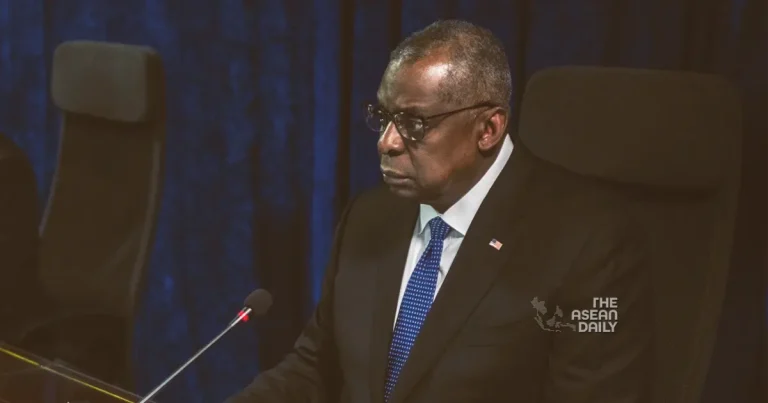7-1-2024 (WASHINGTON) US Defense Secretary Lloyd Austin acknowledged “full responsibility” for the lack of transparency regarding his ongoing week-long hospitalization for an undisclosed medical condition. In a statement released on Saturday (Jan 6), Austin, who is 70 years old, revealed that he was admitted to Walter Reed National Military Medical Center on New Year’s Day due to complications following a recent elective medical procedure. Surprisingly, the Pentagon kept this information under wraps for five days.
Senator Roger Wicker, the top Republican on the Senate Armed Services Committee, criticized the Pentagon for not promptly informing Congress about such matters, as required by law. However, it remains unclear how widely this information was shared within President Joe Biden’s administration. An anonymous US official stated that Biden was only informed on Thursday evening. Despite the lack of transparency, Biden expressed confidence in Austin and the two spoke on Saturday evening, according to another US official.
Austin holds a crucial position just below Biden in the chain of command of the US military. His responsibilities require him to be available at a moment’s notice to respond to any national security crisis. It is still uncertain to what extent his duties were delegated to his deputy, Kathleen Hicks, or whether Austin was involved in any significant decision-making during his absence.
The Pentagon has not provided specific details about Austin’s condition, including whether he lost consciousness during the past week, nor has it mentioned when he might be discharged from the hospital.
“I recognize I could have done a better job ensuring the public was appropriately informed. I commit to doing better,” Austin stated in a written statement. He also emphasized, “This was my medical procedure, and I take full responsibility for my decisions about disclosure.”
Senator Wicker argued that this episode further eroded public trust in the Biden administration, citing previous failures to promptly disclose information about national security incidents, such as the appearance of a Chinese spy balloon over the United States last year. Wicker stated that when one of the country’s two National Command Authorities is unable to perform their duties, the public deserves to know the full extent of the circumstances.
A spokesperson confirmed on Saturday that Austin resumed his full duties on Friday evening but remained in the hospital.
The Pentagon Press Association criticized the Defense Department’s secrecy in a letter to Pentagon officials on Friday evening. It argued that Austin, as a public figure, has no claim to medical privacy in this situation. The association also pointed out that even US presidents disclose when they must delegate duties due to medical procedures. The letter emphasized the importance of informing the American public about the health status and decision-making ability of the top defense leader, particularly during a time of growing threats to US military service members in the Middle East and the nation’s key national security roles in Israel and Ukraine.
Both the Military Reporters and Editors (MRE), a non-profit organization for journalists covering the US military, and Reuters correspondent Phil Stewart, a board member of the Pentagon Press Association, criticized the decision to release the information on a Friday evening when online readership is typically lower. They argued that this approach goes against the principles of information disclosure and fails to meet the standards of public transparency for senior government officials unable to fulfill their duties.




